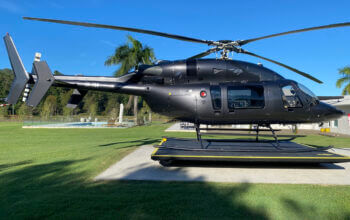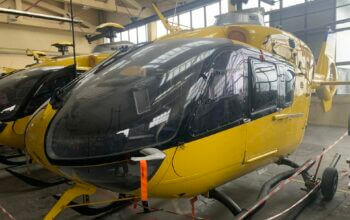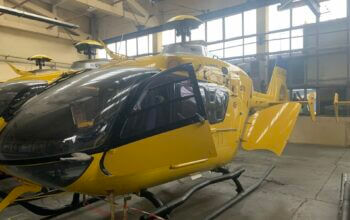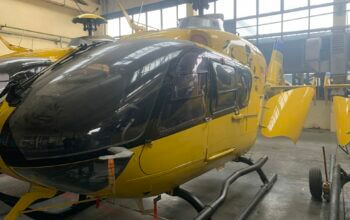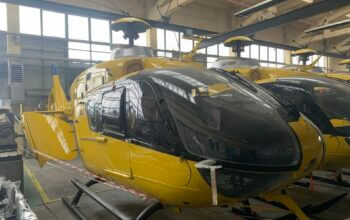Estimated reading time 5 minutes, 49 seconds.
“To be successful, the RCAF needs to foster a culture of innovation and continuous improvement across all foundational elements.”–Royal Canadian Air Force, Future Concepts Directive Part 2: Future Air Operating Concept
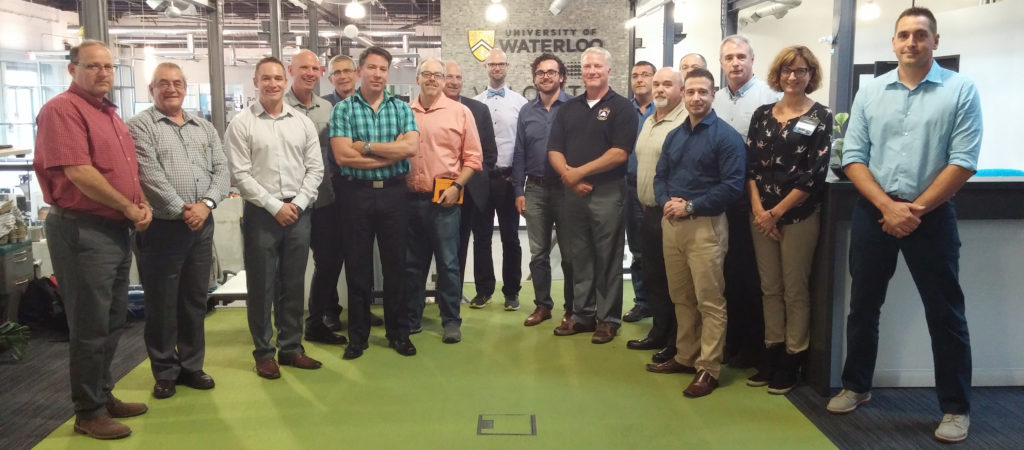
“Innovative technology, knowledge, and problem solving are critical for Canada and its allies to mitigate new threats, stay ahead of potential adversaries, and meet evolving defence and security needs, while generating economic benefits for Canada.”–Strong, Secure, Engaged: Canada’s Defence Policy
Inspired by the open, collaborative and creatively designed working spaces, 18 members of the Royal Canadian Air Force (RCAF) learned a new way of tackling problems at Communitech, a unique, not-for-profit, innovation centre located in Ontario’s Waterloo Region.
The RCAF has established the “Flight Deck” at Communitech, with the goal of fostering a spirit of innovation, to teach members new and efficient ways of thinking, and to solve real-world problems. Four times a year, up to 18 RCAF personnel visit the Flight Deck and participate in a two-day “Innovation Basecamp” training session, to identify and develop solutions to challenges that exist at any level of the RCAF.
The Innovation Basecamp held in September 2017 was the second such event. The problem to solve this time around was “How to best use the RCAF’s Lessons Learned program.” More specifically, the team aimed to determine how to turn lesson-finding reports into lessons learned.
“The Flight Deck at Communitech is just one of the ways that the RCAF is striving to inculcate an innovation mindset,” said LCol Ray Stockermans of the Canadian Forces Aerospace Warfare Centre, located in Trenton, Ont. “Engaging with like-minded stakeholders, including the wider Canadian Armed Forces, our allies, academia, industry and other government departments, the RCAF is promoting a culture change that encourages our members to question the status quo and to bring forth good ideas.”
The RCAF’s diverse and experienced 18-member team was composed of lessons learned experts and representatives from a wide variety of communities and occupations. Led by the expertise of two Communitech facilitators, the team experienced new and innovative ways of considering problems through the lens of the Lessons Learned program.
“Learning opportunities with innovative organizations like Communitech can only enhance our effectiveness,” said LCol Ray Townsend, the commanding officer of 404 Long Range Patrol and Transport Squadron, in Nova Scotia. “It is extremely important for professional aviators and other members of the RCAF to embrace opportunities to ‘think’ in ways that challenge the status quo and have those candid, but respectful, discussions on how to improve how the RCAF operates.”
One of the approaches used during Basecamp was “design thinking,” which compels its users to challenge assumptions and to “use empathy to uncover insights and opportunities to innovate.” Empathy is achieved by “experiencing the problem first-hand, intentionally interviewing and engaging with users to gain perspective, and viewing users and their behaviours in the context of their lives.”
As part of the exercise, the team interviewed senior leaders of the RCAF, applying the new interview techniques, with a view to achieving empathy and, ultimately, clarifying the problem statement and command intent for the Lessons Learned program.
A second approach used was “Lean Canvas thinking,” which quickly identifies the problem, possible solutions, costs, benefits, value perspectives and audience using tools such as interviewing, prototyping, ideation and solution sketching.
During the Lean Canvas education session, Innovation Basecamp participants uncovered more than 100 different ways of improving the Lessons Learned program through ideation, prototyping and focused brainstorming, all while under a deliberate time constraint. While there remains ongoing work to turn the ideas generated at the Basecamp into concrete change, the team developed many viable solutions.
And each member of the RCAF’s team took away learning experiences that they will carry back to their units.
Maj Christy Stef from 1 Canadian Air Division headquarters in Winnipeg, Man., affirmed the value of different perspectives. “Getting a disparate group of people together in a new and creative environment is ideal to generate new ideas and better, more dynamic thinking,” she said.
The real value of the Basecamp was “the opportunity to look at problems from a new perspective, to be receptive to new ideas and to learn new ways of thinking,” noted Cpl Anthony Celeste from 8 Wing in Trenton, Ont.
A final exercise, focused on looking at issues through a different mindset, concluded that the RCAF should strive to see itself as what Communitech describes as a “Nimble Hippo” company, since the RCAF is “agile–move fast and operate at scale; smart—leverage what they have and change what they need to; curious–seek to learn what they don’t know; partner–look to engage ecosystems different than they are; and cool–talent magnet.”
It seems that there are distinct similarities between the Nimble Hippo and the RCAF; it is a large, agile learning organization that is comprised of smart team members (who are able to partner at the national and international level) and is looking to attract the best.
